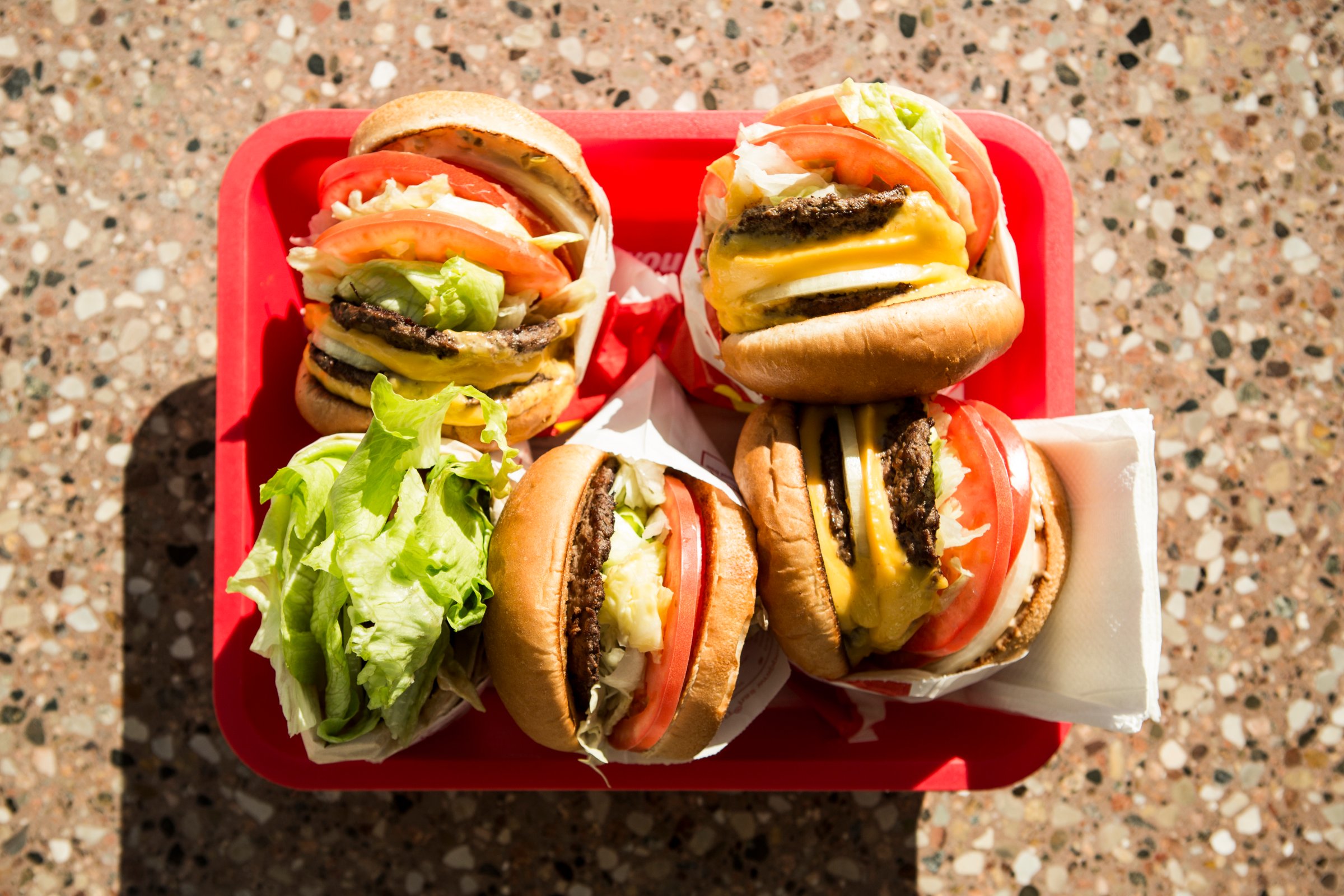
Add this to the list of reasons a drive-thru meal isn’t good for you: the paper it comes packaged in may contain chemicals linked to serious health problems, according to a new study.
The Silent Spring Institute, the Environmental Working Group (EWG) and the Green Science Policy Institute teamed up with researchers at the University of Notre Dame and the Environmental Protection Agency (EPA) to analyze more than 400 wrappers and containers from 27 fast-food chains throughout the country. About half the wrappers tested contained flourine, a marker for per- and polyfluoroalkyl substances (PFASs).
PFASs (formerly called PFCs) make food wrappers and boxes resistant to grease. (People are also exposed to PFASs in certain types of nonstick cookware, waterproof clothing, and stain-resistant products.) Previous studies have linked PFAS exposure to fertility and thyroid problems, developmental delays in children, increased cancer risk, and other outcomes.
Health.com: Want more news you can use? Sign up for our newsletter
Further analysis of 20 samples found that perfluorooctanoic acid (PFOA)—a long-chain PFAS that’s been linked to heart disease and is currently being phased out in the United States—was among the fluoridated compounds present.
This study only looked at the presence of PFASs in the wrappers themselves, and not in the food they contained, or in the people consuming them. But previous research has suggested that PFASs have the potential to leach into food.
“It’s difficult to know how much will actually migrate, because it depends on temperature, the type of food, how long the food is in contact with the paper, and what specific PFASs you’re talking about,” says lead author Laurel Schaider, PhD, an environmental chemist at Silent Spring Institute.
Health.com: 24 Things You Should Never Order When You Eat Out
Research has shown that long-chain PFASs can remain in the body for years. They can also accumulate in landfills when products like food wrappers are discarded, where they can leach into the environment and affect drinking water, the authors say.
You can’t tell by looking at a wrapper or food container whether it contains PFASs, says Schaider; they’re even currently allowed in compostable materials. So the best way to avoid it in fast-food wrappers is to simply avoid fast food. (That’s especially important for kids, she adds, who are more sensitive to harmful chemicals.)
“I think we all already have some reasons to reduce how much fast food we consume, and this may be another one,” she says. “If you’re going to eat it, you could try to get the food out of the wrapper as quickly as possible—that might help a little bit,” she says.
The study was published today in the journal Environmental Science & Technology Letters. The EWG also published a companion report, recommending that all fast-food companies stop using fluorinated compounds in their packaging, and that the Food and Drug Administration further restrict their use in products that have contact with food.
The EWG report also suggests that consumers reduce their exposure to PFASs by eating fresh food and preparing meals at home, avoiding the use of paper tableware, and not buying microwave popcorn. (Make it on the stove instead.)
Consumers can also call or write to fast-food chains they frequent, says Schaider, letting companies know that they don’t want hazardous fluoridated chemicals in their food wrappers. And they can look out for other popular sources of PFASs, like nonstick cookware and stain-resistant carpet and furniture treatments.
“We can be exposed to these chemicals through many different pathways, and all those exposures can add up,” she says. “Even if we can’t avoid all of them, every little bit can help.”
This article originally appeared on Health.com
More Must-Reads From TIME
- The 100 Most Influential People of 2024
- Coco Gauff Is Playing for Herself Now
- Scenes From Pro-Palestinian Encampments Across U.S. Universities
- 6 Compliments That Land Every Time
- If You're Dating Right Now , You're Brave: Column
- The AI That Could Heal a Divided Internet
- Fallout Is a Brilliant Model for the Future of Video Game Adaptations
- Want Weekly Recs on What to Watch, Read, and More? Sign Up for Worth Your Time
Contact us at letters@time.com